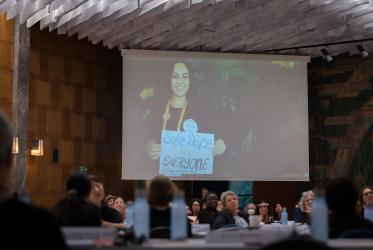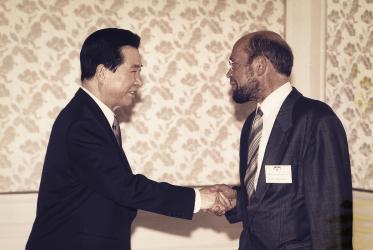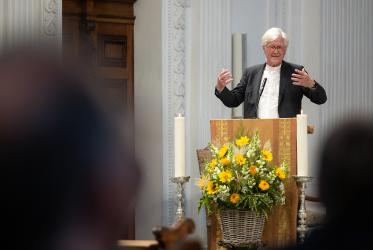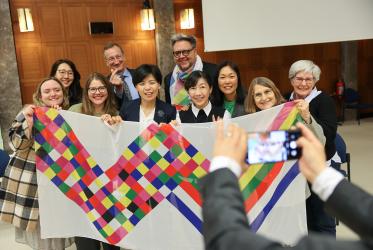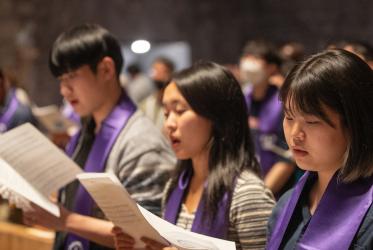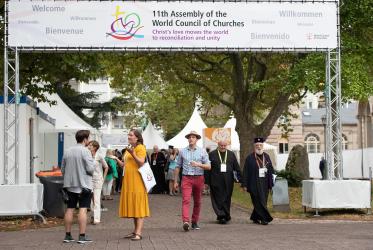Displaying 1 - 20 of 43
WCC moderator calls for a “reformation of hope” based on love
10 October 2023
Chateau de Bossey thriving as lives are transformed
08 September 2023
Ecumenism in the Philippines means hope and resilience
22 August 2023
Squid Game and Ganggang Sullae: workshop reflects on youth poverty
16 September 2022
Christ’s Love (Re)moves Borders – GETI 2022 in images
13 September 2022
Side-by-side, they pray for peaceful unification of the Korean Peninsula
06 September 2022
